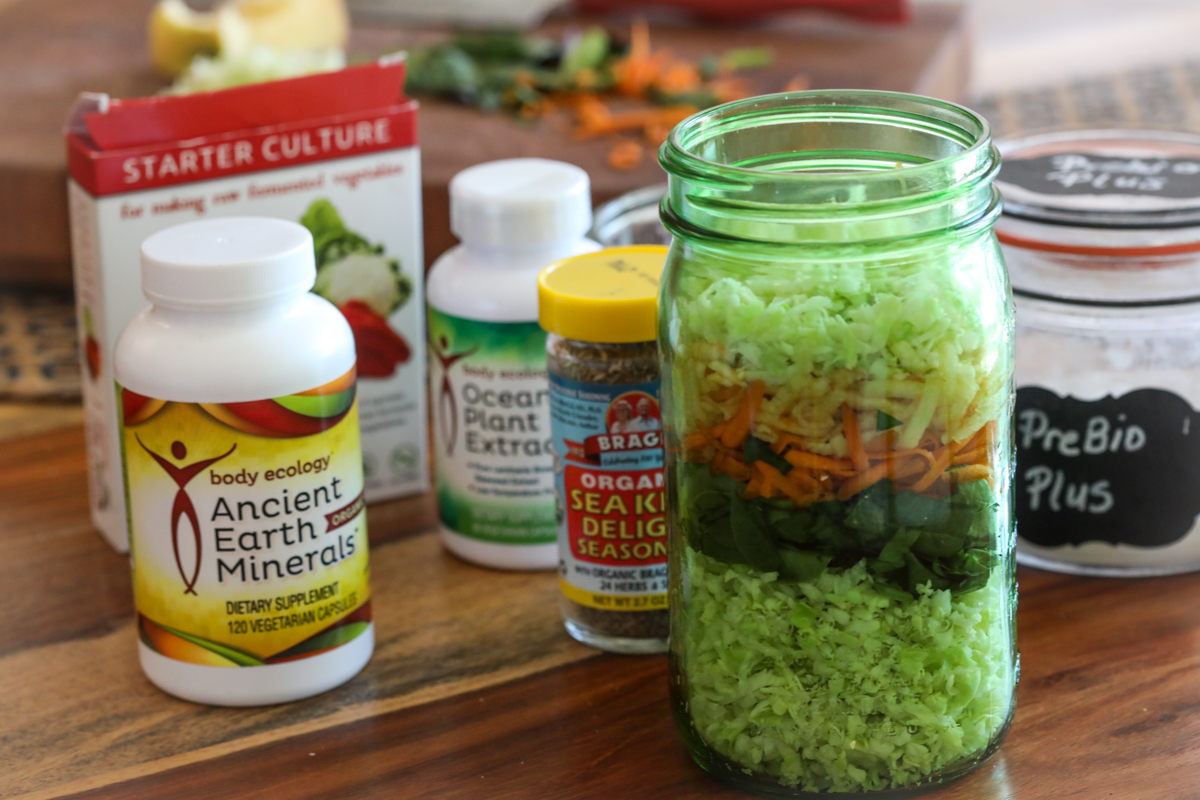
Do Cultured Veggies Need a Starter?
Do You Need A Starter Culture To Make Cultured Veggies?
No Culture Needed — Unless . . .
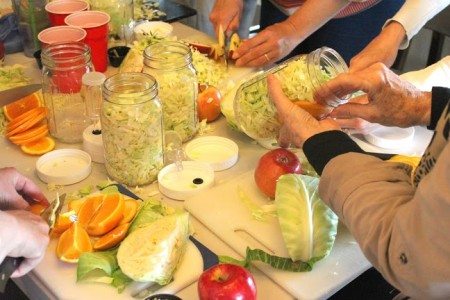 This is something special to know about sauerkraut: you don't actually need a culture to make it. The cabbage combined with salt will make its own good bacteria. These good bacteria dominate and crowd out the harmful ones and preserve the food in a safe way. You can make sauerkraut with just salt, but you must add enough salt with this method to inhibit the growth of bad bacteria and to create an environment that is safe.
This is something special to know about sauerkraut: you don't actually need a culture to make it. The cabbage combined with salt will make its own good bacteria. These good bacteria dominate and crowd out the harmful ones and preserve the food in a safe way. You can make sauerkraut with just salt, but you must add enough salt with this method to inhibit the growth of bad bacteria and to create an environment that is safe.
So no, you do not need a starter culture to make cultured veggies. However, by using a starter you will receive more probiotics and a lot of other benefits. Let me explain your options and you can better choose which is the best method for you. I have tried all the methods below and these are the things I have learned in my years of experience and through trial and error, which is a great teacher. I only sell things in my store that I like and use and I will always shoot straight with you about everything that I personally do.
Benefits Of Cultured Veggies
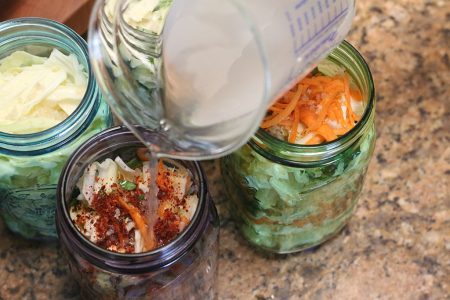 Make these veggies any way you can and you will receive some of these benefits.
Make these veggies any way you can and you will receive some of these benefits.
- Help with seasonal allergies
- Natural immune system booster
- Ideal for children with Autism and ADD
- Curb cravings for bread, sweets, and dairy
- Great food poisoning remedy
- Resist viruses and infections
- Cancer prevention
Here are the options and methods you can use to make cultured veggies
Methods For Making Cultured Vegetables
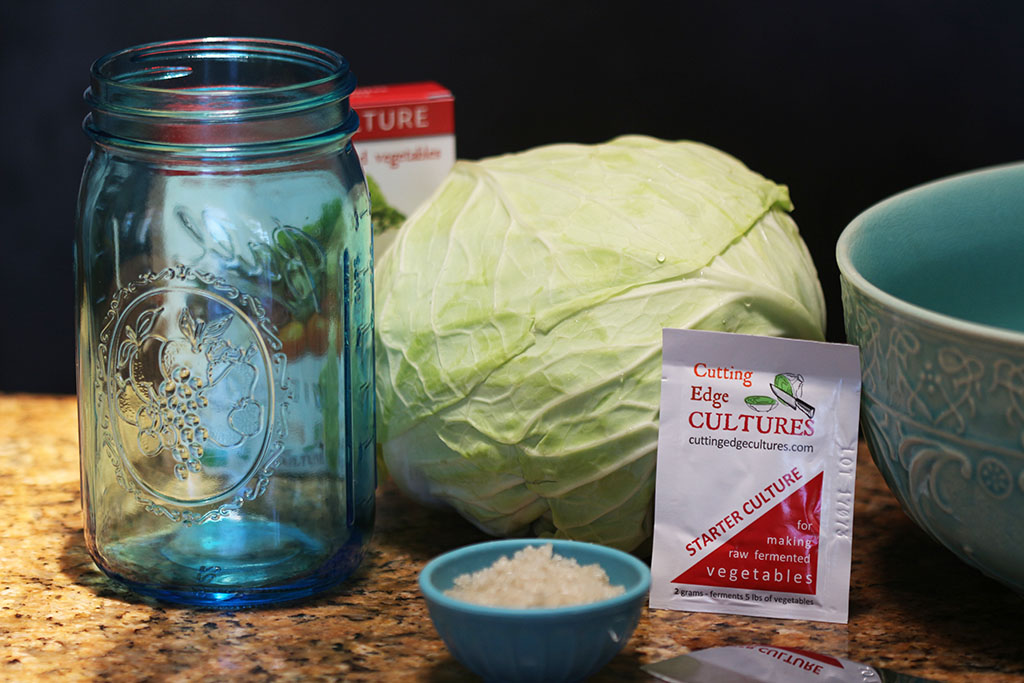

This is, hands down, my favorite culture to make cultured vegetables. It is dairy free and this culture was specially designed to make good bacteria stay at a higher level for a longer period of time. When you make cultured veggies they're at their strongest after the first few days they are made. This is because the cultures are rapidly consuming the food in the veggies and making probiotics, but as they run out of food they start to diminish. This will happen more quickly when you don't use a culture. At first, I thought this was just a lot of hype, but after using this starter in my veggies for years I saw a huge difference. Then not long after that, I had a microbiologist come to one of my classes who actually tested both the vegetables without a starter and ones with a starter and confirmed that after a week of fermentation and then being in the fridge for several weeks most of the probiotics were gone in the ones using just salt, while the ones using a starter still had many probiotics. This starter also makes these veggies really strong and powerful; so I caution you to be careful because they will start to clean the world inside of you when you eat them, removing pathogens and candida and you will often feel the effects if you consume too much and aren't used to them.
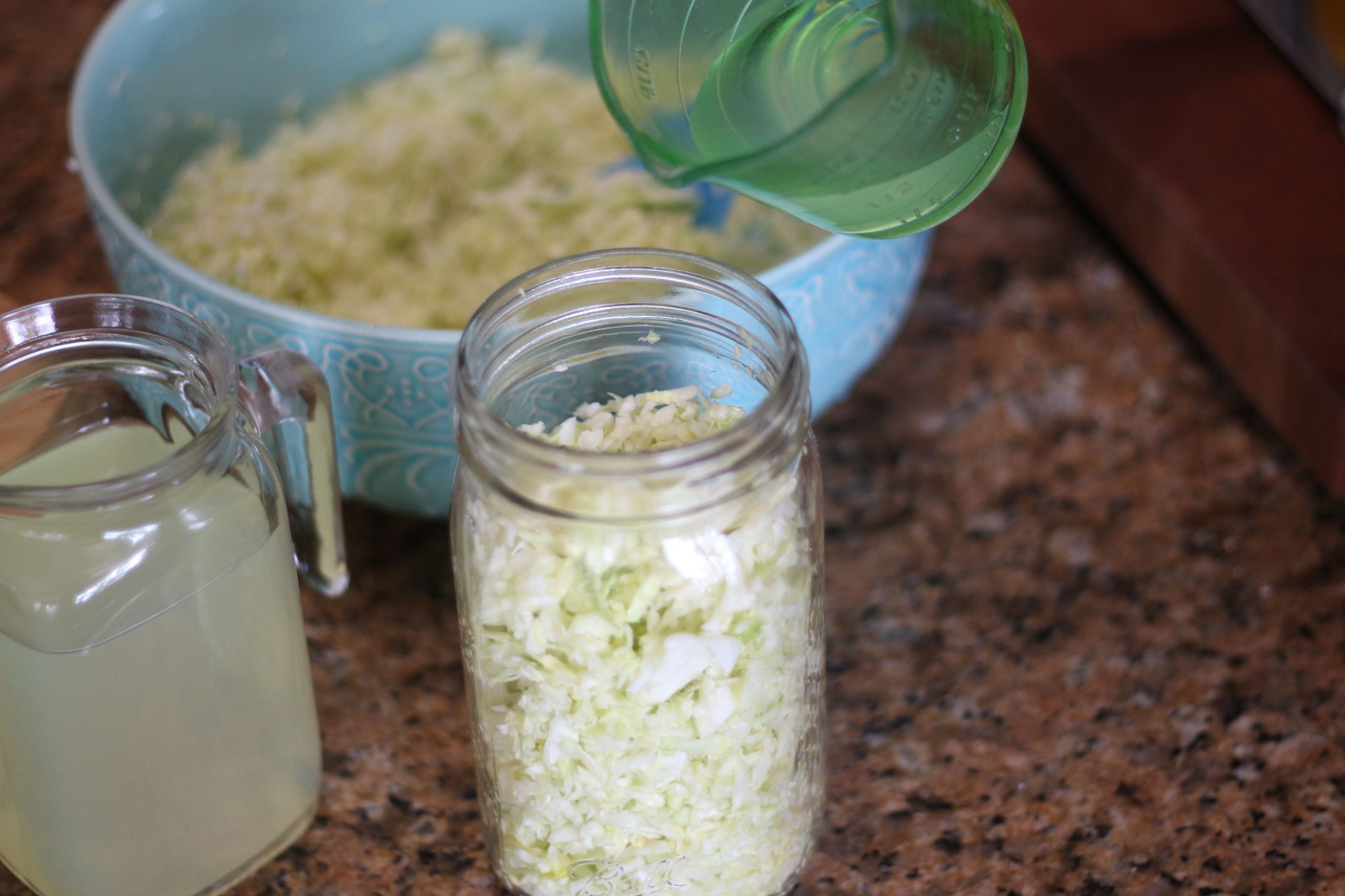

This is a great resource when you don't have a starter culture, but there are a few things that I want to mention. First of all, if you make milk kefir a lot you will always have access to kefir whey, which is handy. You should always use fresh whey within a few days of making your kefir. Kefir whey that sits a long time, even in your fridge, loses a lot of its probiotics because it is separated from the milk which is its food source. When culturing with kefir whey, it is best to culture in small batches and eat it quickly because it can get a strong taste that I don't like over time. There are a lot of kefir strains of bacteria that will ferment your veggies in different ways, so your veggies will taste different and you will get different bacteria benefits than you would with the bacteria in powdered veggie starter cultures.
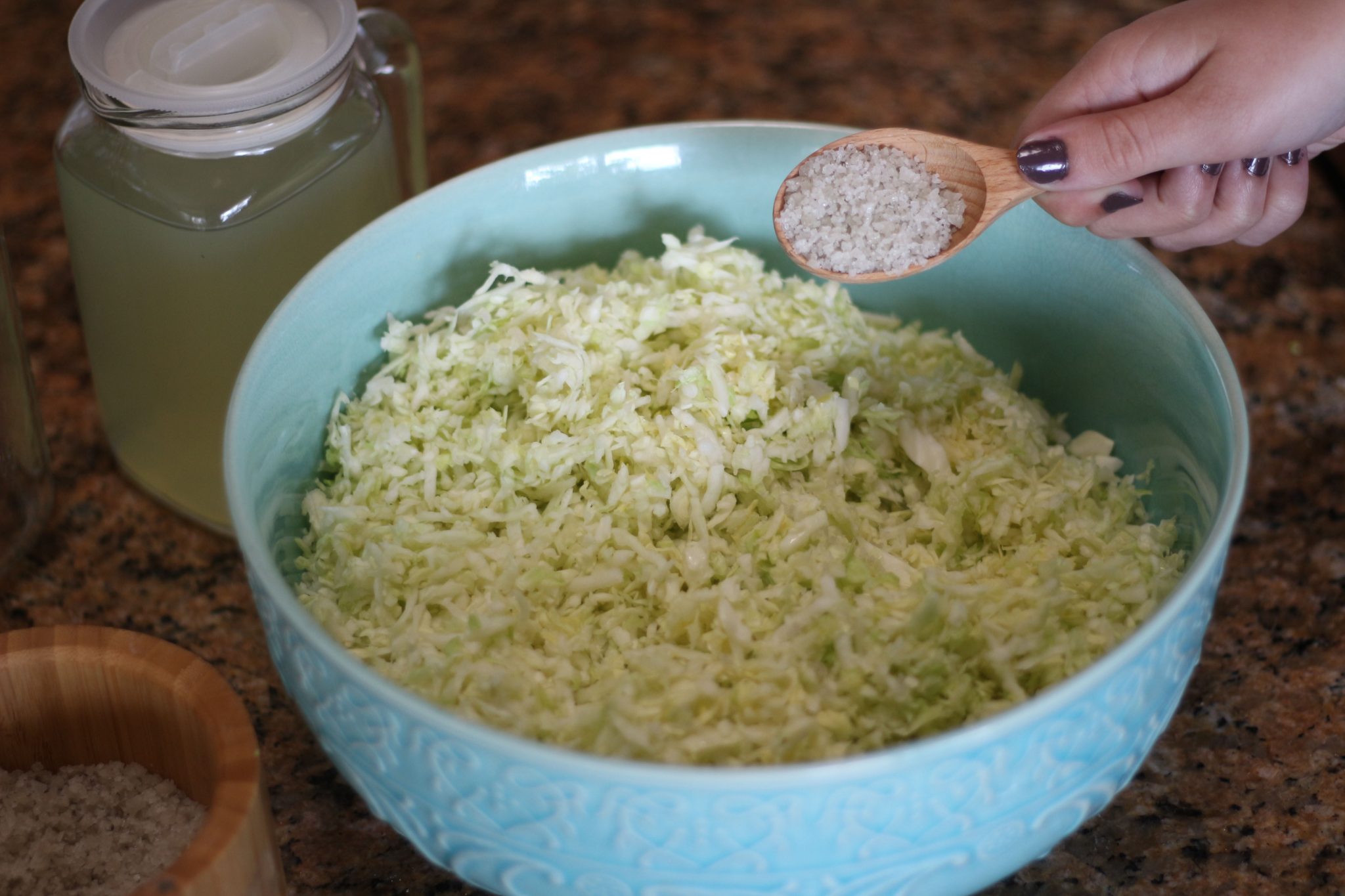

This is a fun and easy way to make cultured veggies and great if you are limited on resources.
When you add salt and submerge the vegetables under the water, the good bacteria Lactobacilli will dominate and keep out harmful pathogens. The salt pulls water out of the cabbage (through osmosis) and this creates the brine in which the cabbage can ferment and sour without rotting. The salt also has the effect of keeping the cabbage crunchy by inhibiting organisms and enzymes that soften it.
Veggies naturally make their own good bacteria. Over the course of a few weeks, these probiotics diminish quickly as they run out of food which is another reason I recommend using a starter culture to keep the probiotics at higher levels longer. Still, this is a good way to have cultured veggies and it is also fun to make and super easy. I would double the salt in all the recipes to ensure that the pH is at the correct level you need to cause the proper fermentation.
I do believe that using a starter culture has a lot more benefits, including more probiotics, but this is a good method as well and the health benefits are many. Check out the recipe!
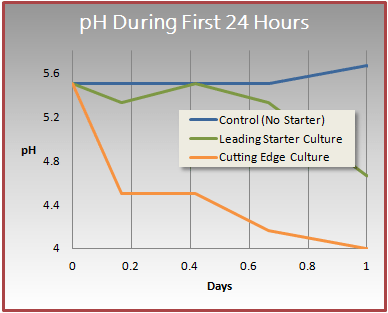 Controlling the pH When Making Cultured Vegetables
Controlling the pH When Making Cultured Vegetables
One of the key criteria we used to evaluate healthy fermentation was how quickly and by how much the acidity increased after fermentation began. The faster you can drop the pH in your homemade fermented vegetables, the healthier and safer they will be. Vegetables usually ferment safely and quickly; but if you're using salt, make sure you use enough to drop the pH.
Here is a graph showing how the pH drops when you're using a starter culture rather than using just salt.
The natural bacteria in the vegetables break down components of the vegetables into forms that are easier to digest and more nutritious and increase vitamins and minerals. The lactic acid (Plantarum) that forms during fermentation kills any harmful bacteria that might be present. Check out this article for more info on safety and fermentation.
Listen To My Podcast
No, you do not need a starter culture to make cultured veggies. However, by using a starter you will receive more probiotics and a lot of other benefits. Let me explain your options and you can better choose which is the best method for you.
References I talked about:
Are you on the list?
Sign up today and I'll send you my free Getting Started Guide!
Each week I'll send you updates, tips, recipes, and more! You might even be a winner of my weekly giveaway! (starter cultures, memberships, and more!)
Come be a part of my cultured food family!

